| | Donald Trump issues new tariff threats, India’s Jane Street accusations rattle dealing rooms, and a ͏ ͏ ͏ ͏ ͏ ͏ |
| |  | Flagship |  |
| |
|
The World Today | 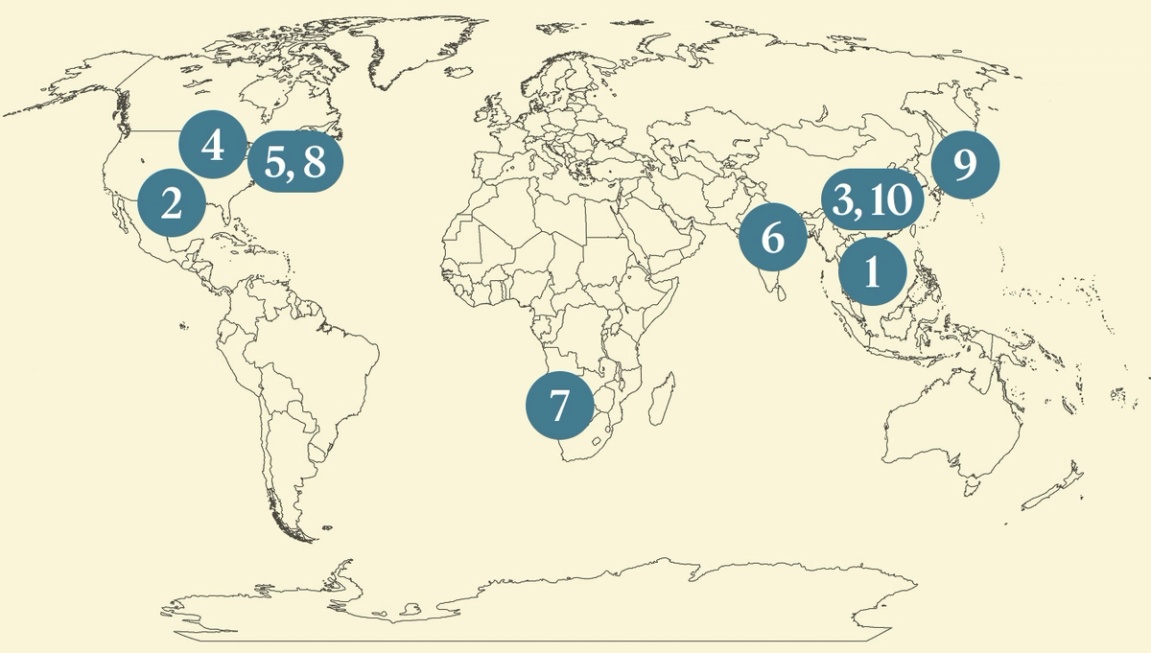 - Trump renews tariff threats
- Texas death toll rises
- Tesla shares slide
- Axing EV tax credits
- Stephen Miller’s power
- Nightmare on Jane Street
- India eyes Africa minerals
- AI book has AI errors
- Japan name change law
- Controversial Chinese game
 Why emojis are political. |
|
Trump returns to hardball tariff posture |
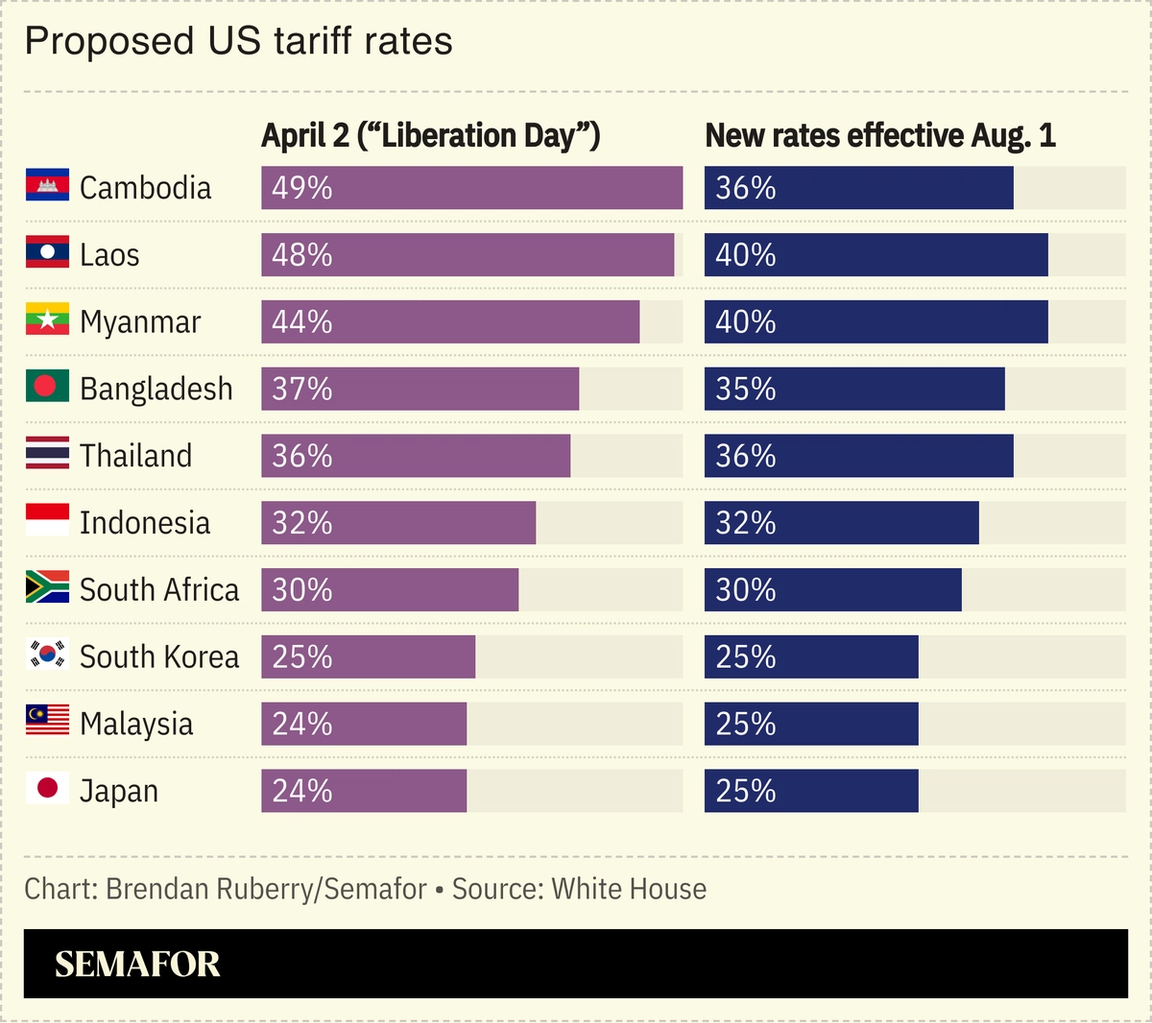 US President Donald Trump on Monday threatened higher tariffs on several countries unless they strike trade deals by Aug. 1. Trump sent letters to major trading partners, including Japan and South Korea, dictating new blanket tariffs after extending the July 9 deadline for imposing his “Liberation Day” duties. The letters, which caused US stocks to tumble, are a message to those countries where White House officials “don’t believe that trade talks are going particularly well,” a former trade negotiator said. The notices also deal a blow to “hopes that Trump would scale back tariff threats and de-escalate a trade war,” FXStreet wrote. “Once again, Trump is playing hardball… and markets have been jolted awake.” |
|
Death toll rises in Texas |
 Marco Bello/Reuters Marco Bello/ReutersThe death toll from flooding in Texas surpassed 100 on Monday, as officials faced scrutiny over the adequacy of local warning systems. National Weather Service meteorologists didn’t err in their forecasts, experts said — the agency escalated flood warnings ahead of the storm — but “even quite good weather forecasts do not automatically translate into life-saving predictions,” one climate scientist said. Rather, flood-warning sirens could have made a difference, Texas’ lieutenant governor said Monday, adding that they must be in place by next summer. Experts also dismissed conspiracy theories that cloud seeding technology caused the flooding; similar misinformation surfaced after damaging floods hit the United Arab Emirates last year. |
|
Tesla takes hit over Trump-Musk rift |
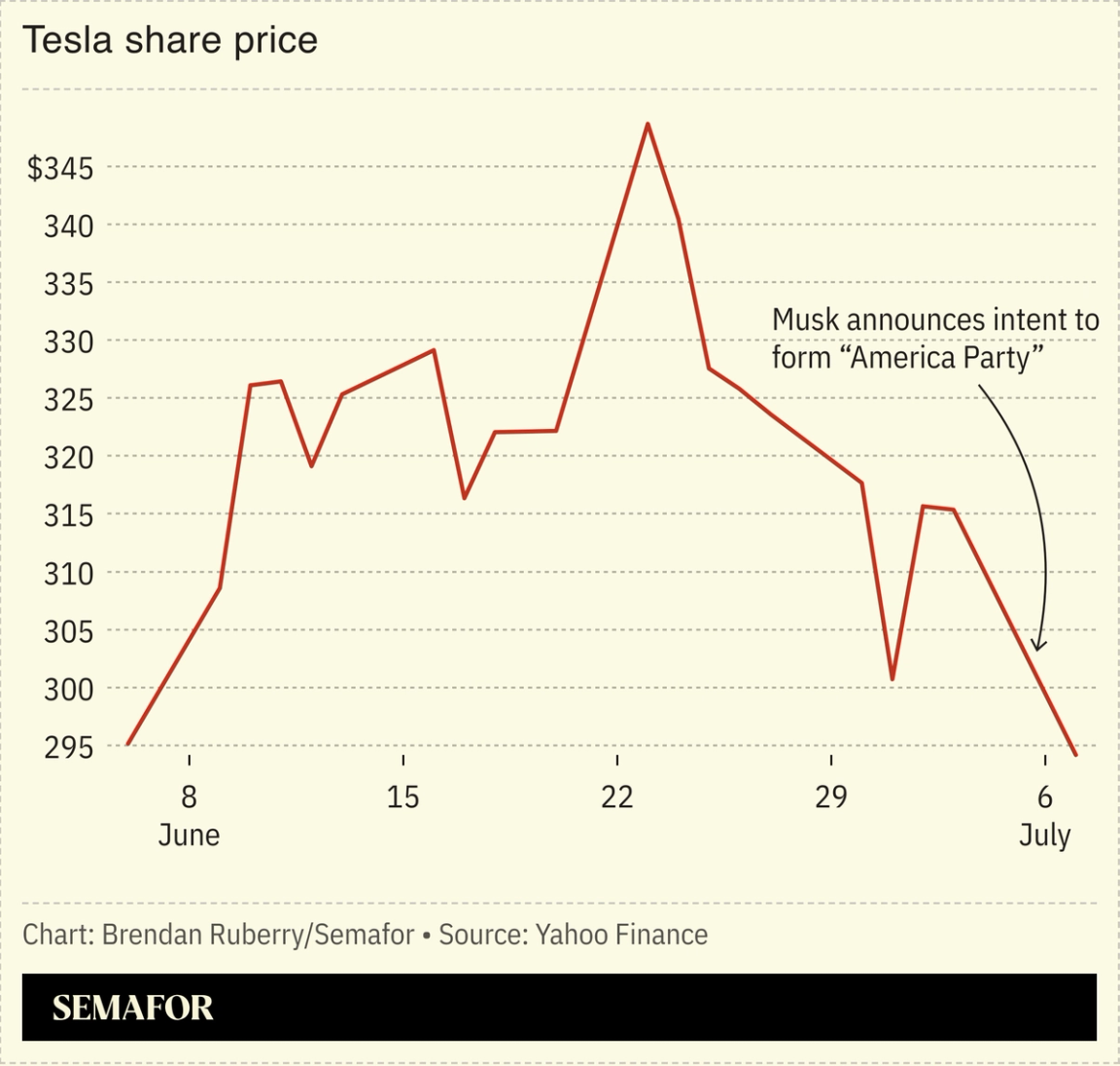 Tesla shares fell steeply Monday after CEO Elon Musk vowed to form a new US political party. Musk’s pledge to create the “America Party” stemmed from his rift with President Donald Trump, especially over his criticism of Trump’s sweeping tax-and-spending package. Analysts warned that forming a new party could hurt Musk’s businesses; Tesla’s stock price fell nearly 7% Monday. Tesla investors “only see downside from his dip back into politics,” one analyst said. Musk’s split with Trump could also hurt the EV company’s business in China: The billionaire and former White House adviser was once seen as a “partner for Beijing in Washington,” The Wall Street Journal wrote, but he is of less value to the Chinese government as an outsider. |
|
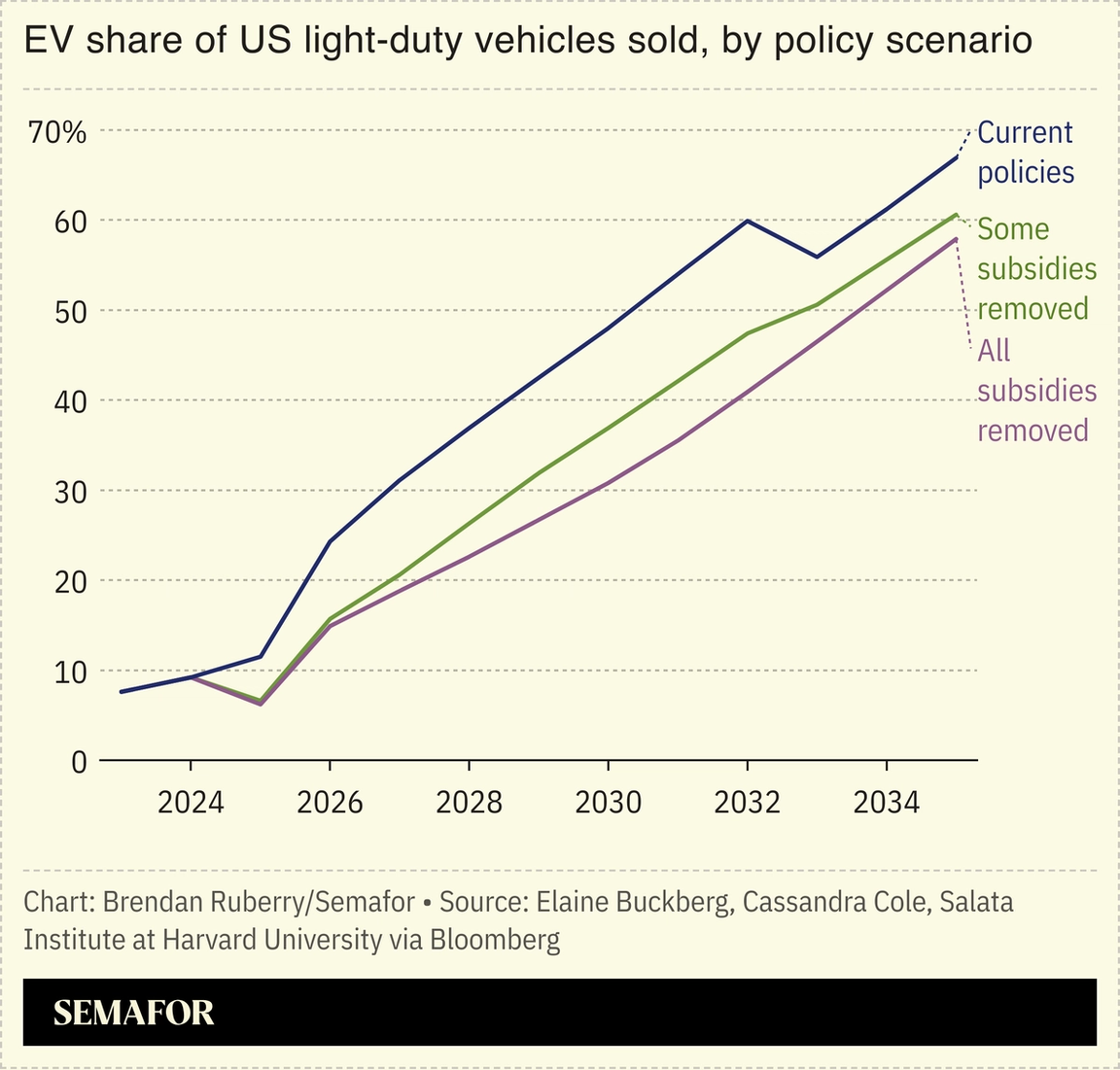 US President Donald Trump’s axing of lucrative electric vehicle subsidies will dent sales of major US car manufacturers, but it won’t put the brakes on EV adoption, analysts said. Trump’s “big, beautiful bill” kills $7,500 tax credits for EV customers on Sept. 30, likely prompting a buying frenzy before the deadline: “This is going to be the summer of the EV,” an industry advocate told CNBC. And while Trump’s anti-EV policies will impact automakers like Tesla, an economist estimated that around 37% of new cars purchased in 2030 will be electric, given customers’ access to cheaper and better models, Bloomberg reported. Ford also intends to press ahead with its partially completed $3 billion battery factory in Michigan. |
|
Stephen Miller’s White House clout |
 Evelyn Hockstein/Reuters Evelyn Hockstein/ReutersThe historic funding for immigration enforcement in US President Donald Trump’s tax-and-spending bill reflects the expanding power of his top policy adviser, Stephen Miller, a commentator argued in The New York Times. The $45 billion allocated to ICE effectively gives Miller, an immigration hardliner, “his own private army,” Jason Zengerle wrote. Miller served in Trump’s first administration, but, like the president himself, appears unrestrained this time around: His influence has extended to the administration’s battles around higher education, transgender rights, and foreign policy. But Trump has at times walked back maximalist immigration positions pushed by Miller, hinting “at a broader potential rupture,” Zengerle noted, and it remains to be seen whether Miller will go the way of other Trump advisers-turned-adversaries. |
|
Jane Street accusation rattles firms |
 Francis Mascarenhas/Reuters Francis Mascarenhas/ReutersUS trading house Jane Street will contest market manipulation charges from India’s financial regulator, which banned the firm from dealing securities in the country. Authorities alleged that Jane Street, one of the biggest algorithmic-trading groups, systematically influenced Indian bank stocks to trigger massive payouts — accusations that “became the talk of dealing rooms from New Delhi to Amsterdam,” Bloomberg wrote, noting that it could be a warning to other high-frequency trading firms. Foreign funds and proprietary traders wielding algorithms have previously netted $7 billion annually in India, but are now “rattled” by the Jane Street controversy, an Indian legal news outlet reported. India’s ban “signals an aggressive stance against sophisticated global players potentially gaming the system,” an analyst said. |
|
India eyes mineral-rich Africa |
 Francis Kokoroko/Reuters Francis Kokoroko/ReutersIndian Prime Minister Narendra Modi’s visit to resource-rich Namibia this week reflects New Delhi’s desire for more critical minerals, analysts said. During the trip, which follows Modi’s stop in Ghana last week, the premier is expected to discuss access to critical minerals such as cobalt and lithium, uranium supplies, and the diamond trade. India’s demand for critical minerals — essential for electric vehicles and other renewable technologies — is expected to surge in the coming years, largely driven by the clean energy transition. Modi is likely to emphasize cooperation among the Global South and “refute notions that India is a perennial underdog or a neo-colonialist in a new scramble for Africa,” a researcher wrote in The Conversation. |
|
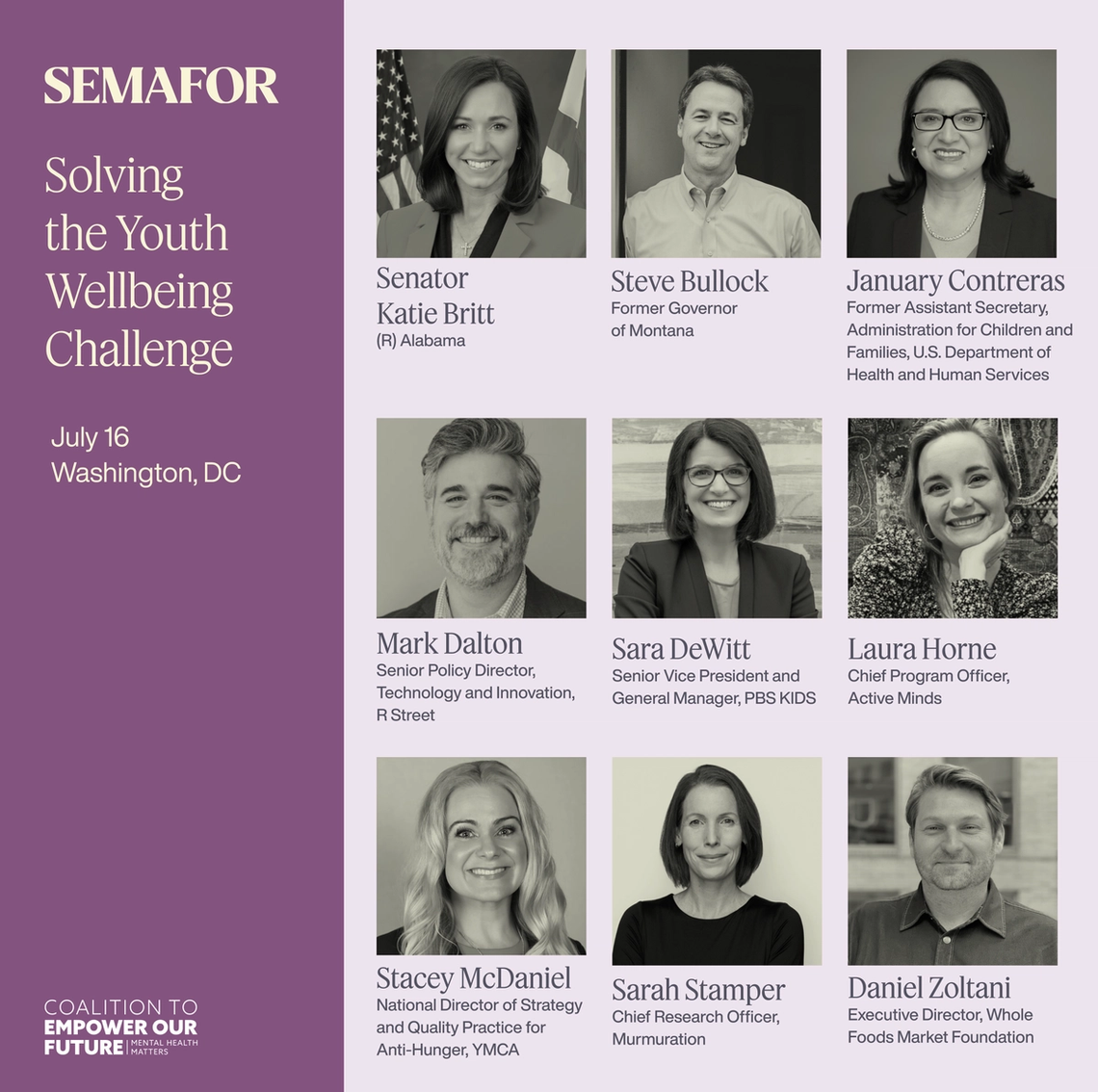 Today’s youth are being raised at a critical technological crossroads, where emerging social media pressures are driving isolation and fueling rise in depression and loneliness. While tools offer unprecedented connectivity, they also contribute to digital fatigue, fragmented social relationships, and a profound sense of isolation. Join Semafor at The Gallup Building to hear from Sen. Katie Britt, R-Ala., Daniel Zoltani, Executive Director of the Whole Foods Market Foundation; Sara DeWitt, Senior Vice President and General Manager of PBS KIDS; Laura Horne, Chief Program Officer of Active Minds; Stacey McDaniel, National Director of Strategy and Quality Practice for Anti-Hunger of YMCA; and more, as we explore the complex drivers of youth wellbeing and the impact of this crisis on multiple future generations. July 16, 2025 | Washington, DC | RSVP |
|
 Springer Nature Springer NatureA new textbook on artificial intelligence appears to contain citations that were hallucinated by AI. Mastering Machine Learning: From Basics to Advanced was published in April by Springer Nature, one of the world’s biggest scientific publishing houses. A scientist whose work was cited by the book told Retraction Watch that the works mentioned do not exist; further investigation found that several other citations were either fake or substantially wrong. Two recent US health department reports contained apparently nonexistent references likely generated by AI, and Retraction Watch has a long list of scientific papers containing evidence of undisclosed AI use. Mastering Machine Learning notes the “important ethical questions about the use and misuse of AI-generated text.” |
|
Japan name law affects researchers |
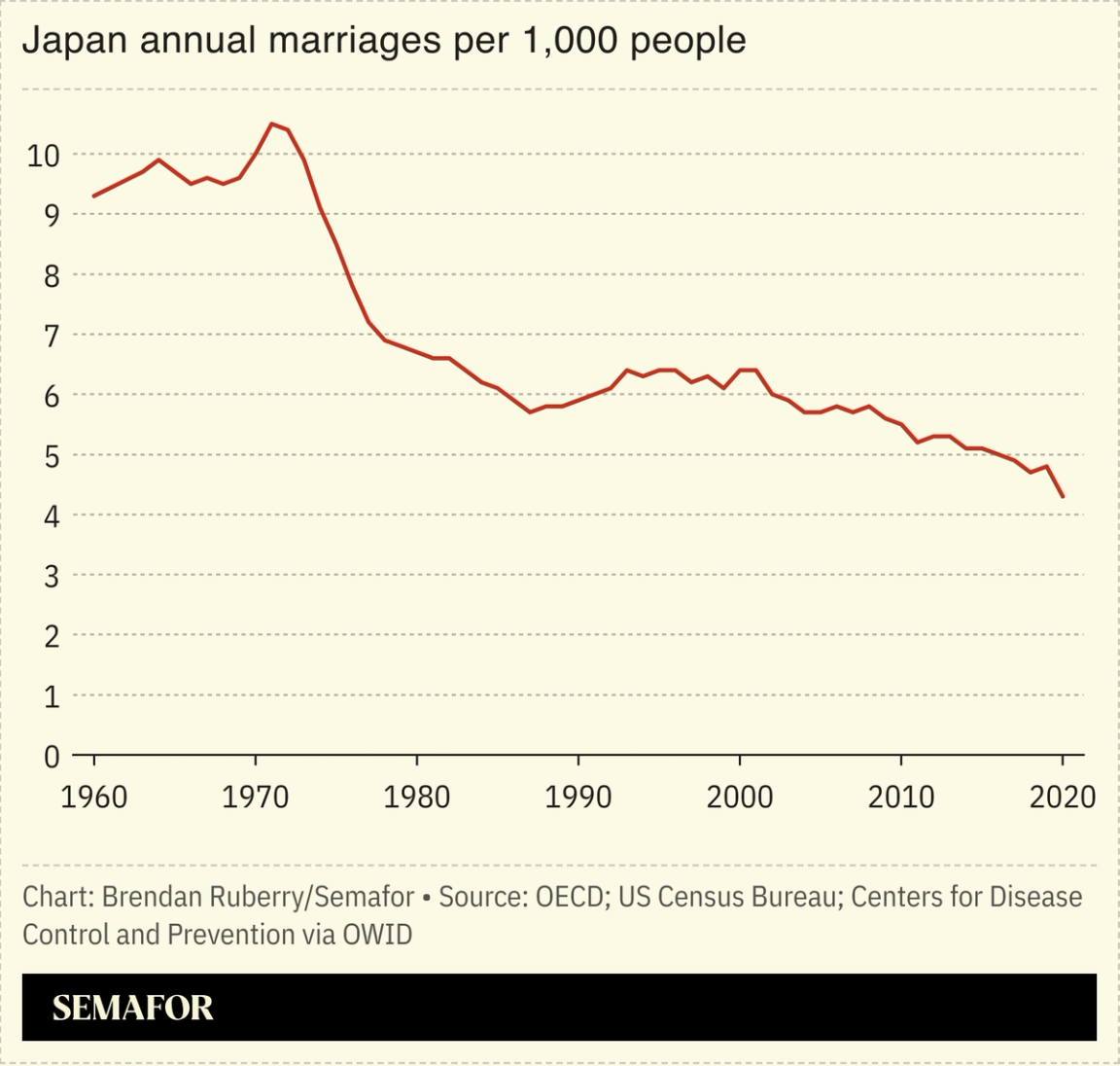 Japan’s law requiring married couples to share a surname is a problem for professional women. Around 95% of married women in Japan change their names, and a recent survey found that female academics struggle to obtain grants and patents, and are less likely to gain recognition for their work, once they lose the name they worked under. The rule also causes logistical problems, as IT systems often require the new last name even if the woman continues to use her birth name informally: It felt like “hitting the reset button on my career,” one woman told The Washington Post in 2021. A proposal to change the law went before Japan’s legislative body last month but a decision has been delayed. |
|
Chinese game sparks sexism debate |
|
|